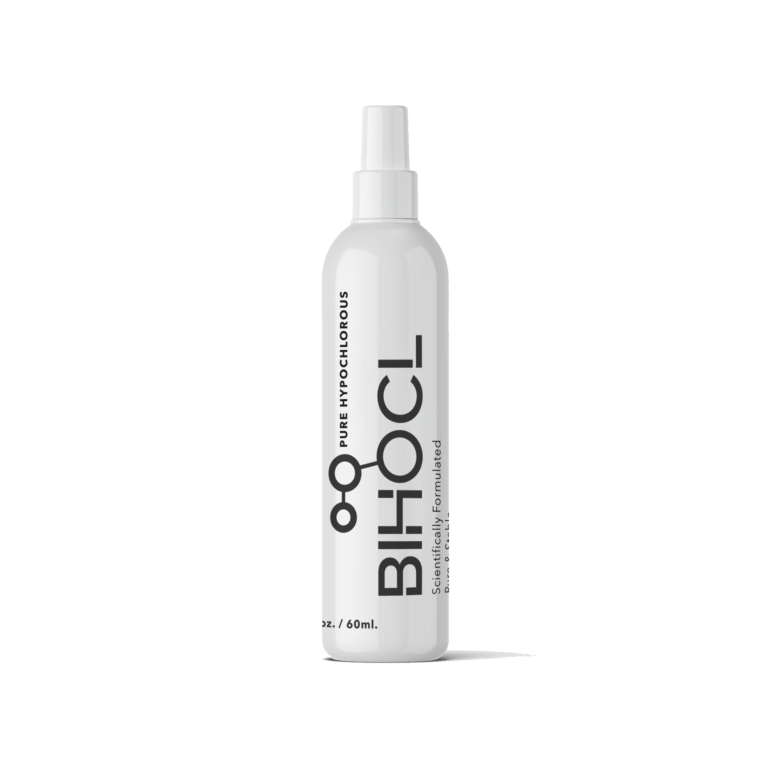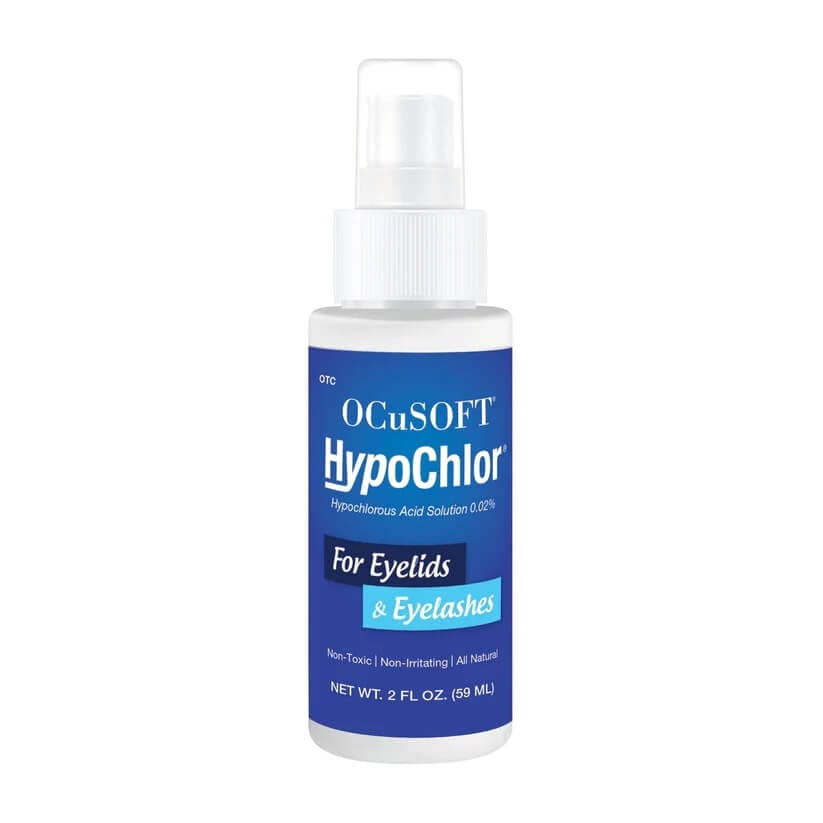The Science Behind Hypochlorous Acid And its Efficacy in Treating Blepharitis
Hypochlorous acid (HOCl) isn't just a staple in eye health because of anecdotal success; its efficacy is backed by science. When we delve into the microbiological aspect of dry eye, the role of HOCl becomes clear and compelling.
Antimicrobial Action
HOCl is a natural biocide, meaning it can neutralize harmful pathogens effectively. The substance works by disrupting the cell walls of bacteria and inactivating key cellular components, preventing them from multiplying. This antimicrobial action is crucial in controlling the bacterial load on the eyelids, particularly around the lash line where bacteria contribute to dry eye symptoms.
Anti-inflammatory Properties
Beyond its ability to eliminate pathogens, HOCl has significant anti-inflammatory properties. Inflammation is a core issue in dry eye, often causing redness, swelling, and discomfort. HOCl helps to soothe these inflammatory responses, bringing much-needed relief to dry eye sufferers.
Safety Profile
A standout feature of HOCl is its safety profile. It's non-toxic to human cells and doesn't sting or irritate, making it suitable even for those with sensitive eyes. This is critical because maintaining a treatment that doesn't cause additional discomfort can improve adherence to eye care regimens.
The Role in Meibomian Gland Health
As part of a comprehensive approach to treating dry eye, HOCl helps maintain the health of meibomian glands. These glands are responsible for secreting the oily layer of the tear film, and their dysfunction can exacerbate dry eye symptoms. By controlling bacteria levels, HOCl reduces the risk of blockages in these glands, promoting better tear film stability.
Scientific studies have provided evidence supporting the use of HOCl in treating conditions like blepharitis, which is often associated with dry eye. By reducing bacterial colonization and biofilm formation on the eyelids, HOCl aids in managing the underlying issues that contribute to dry eye syndrome.
For those wondering about the health of their meibomian glands, which are essential for tear stability, our meibomian gland dysfunction article provides a thorough look into the condition.
Complementing Other Dry Eye Treatments
It's worth noting that hypochlorous acid does not replace the need for a comprehensive approach to dry eye management, which may include warm compresses, prescription medications, Intense Pulsed Light (IPL) therapy or specialized contact lenses like scleral lenses. Instead, it complements these treatments, adding another layer of care to a multifaceted condition.

















